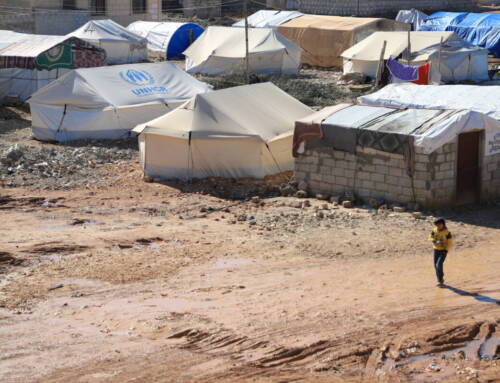Kurdish reporter: IS ‘exports their terror’ to Kurdish cities
October 1, 2014 US-led coalition warplanes struck IS positions on […]
1 October 2014
October 1, 2014
US-led coalition warplanes struck IS positions on the outskirts of the Kurdish-majority town of Kobani Wednesday in an attempt to check IS’s stubborn advance towards the town, reported the Syrian Observatory for Human Rights.
IS fighters had reached a point just 3km from Kobani as of Tuesday, Adnan Hussein, a Kurdish journalist based on the Turkish side of the Syrian border, told Syria Direct.
“Fighters with the YPG have refused to retreat, they are defending the town fiercely, despite a lack of numbers and equipment…it is a matter of life or death, Rami AbdulRahman, head of the Syrian Observatory, told AFP Wednesday.
Here, Baz Ali Bakari a Syrian-Kurdish journalist, speaks to Syria Direct’s Mohammed Al-Haj Ali about the battle for Kobani, and the humanitarian situation facing hundreds of thousands of Kurds who Kobani for Turkey.
Q: Describe the military situation in Kobani now? Who is progressing there, IS or the Kurds?
The battles are happening away from the city, the closest point of clashes is at Ain Ghazal, about 10 kilometers from Ain al-Arab.

Q: Why is IS focusing on Kobani?
There are several reasons; they target the Kurds as a nationality and export their terror to our cities. The second reason is the geographic location of the city [on the Syrian-Turkish border]. Thirdly, IS is trying to gain control over the territory under the control of the PYD and PKK.
Q: We heard that some fights broke out between young displaced Kurdish men and Turkish border forces.
Some Kurdish young men wanted to come back to Kobani to fight IS and defend their city. The Turkish forces did not allow them to cross back into Syria, but they snuck back in anyway.
Q: Why they were forbidden to go back?
The Turks said they wanted to keep order on the borders, personally I tried to cross over more than one time and they did not allow me.
Now the situation is calm, there are no problems except the humanitarian condition that requires international aid.
Q: How are the UN and Turkish government responding to the humanitarian crisis?
Until this moment, the services provided do not meet the requirements of the humanitarian crises that are occurring. Only local charities and organizations are helping, in addition to the SNC. The Syrian interim government [reportedly] provided $100,000.
But there are no tents or camps, people are sleeping outdoors. The city where the displaced people stay, Serraj, is having heavy rains now.
Q: How are Syrians reacting to the air strikes on IS and other Islamist battalions?
There are different reactions. Many activists were against the airstrikes, but other activists within IS-controlled areas support them.
For more from Syria Direct, like us on Facebook or follow us on Twitter.







